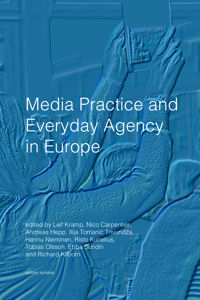
| |||
Media Practice and Everyday Agency in Europe | |||
| Title chapter: | The Alchemy of Central and East European Media Transformations: Historical Pathways, Cultures and Consequences | ||
| Author: | Aukse Balcytiene | ||
| Keywords: | Media Transformations, Media Research Traditions, Democratisation | ||
| Abstract: | Comparative studies in media and politics have been prized for some decades. Some scholars have identified the comparative approach as the only enquiry allowing the detection and identification of invisible social features. Others stress that academic thinking without comparative elements is unthinkable. As seen from today's media analyses, it indeed seems appropriate to place the examination of contemporary media developments in international (European) contexts and frameworks since such placements highlight historical tendencies, allowing the identification of commonalities and differences in the development of contemporary social institutions. In media studies, and particularly in CEE media developments and professionalisation research, there has been a dominant trend to describe those contexts and societies as vulnerable and imperfect - as displaying more fragile and uncertain institutional legitimacy and trust, weaker media professionalism and accountability, as well as vaguer public service ethos (Trappel et al., 2011). Despite the fact that this can be seen to varying degree in all countries around Europe, such features have predominantly contributed to the assignment of CEE countries and their political and media arrangements into a specific (fourth) model of European media and politics (Hallin and Mancini, 2004). [...] | ||
| >Click here to download full chapter [pdf] | |||
|
The | |||